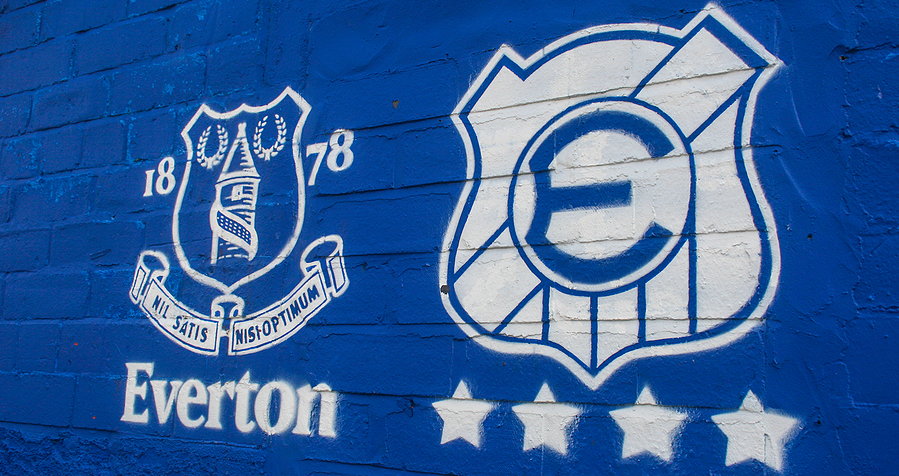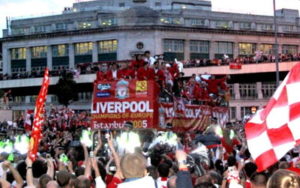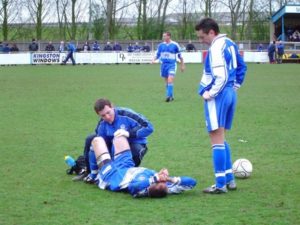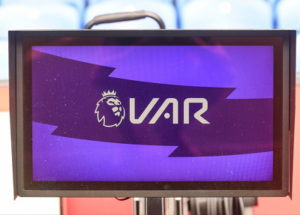 We’ve all been there, one minute your team is cruising to what looks like a win by a two goal margin and 10 minutes of madness later, they are on the ropes have surrendered their lead and do not look like scoring again.
We’ve all been there, one minute your team is cruising to what looks like a win by a two goal margin and 10 minutes of madness later, they are on the ropes have surrendered their lead and do not look like scoring again.
This is perhaps what makes football such an exciting sport, especially when you factor in betting as well. For those neutral football fans who have decided to go against all logic and put bets on a team who has been trailing substantially and ended up turning it around, the chances are, they will have been given very favourable odds.
Promotions that payout when your team goes 2-0 up have also become common. The question is are these offers actually good value? Here we look at how often teams lose or draw when winning by two or more goals in a game to help you decide.
Teams Who Lose A 2+ Goal Lead

Over the last few seasons, teams losing a two or more goal advantage has become rarer, however it still can happen, as demonstrated by the 2018/19 Premier League campaign.
| Team | Times 2-Goal Lead Surrendered |
|---|---|
| Everton | 2 |
| Brighton | 2 |
| Southampton | 2 |
| Fulham | 1 |
| Newcastle | 1 |
| Watford | 1 |
| Burnley | 1 |
| Huddersfied | 1 |
Perhaps surprisingly, when considering the unpredictability of the Premier League, there were only nine teams who were involved in surrendering a two goal advantage, with this happening on 11 occasions, occurring twice for three clubs. There are 380 matches in the league season meaning a two goal lead was surrendered in just 2.9% of all matches.
Some notable games from that campaign include Everton’s 2-2 draw at newly promoted Wolves on matchday one with the home side coming back from two goals down, while on matchday eight, Manchester United were trailing Newcastle United 2-0 at half time at Old Trafford, before they came earned a 3-2 win. The Red Devils achieved a similar feat on matchday 24 when they were trailing at home to Burnley 2-0 at hatf time and managed to salvage a 2-2 draw.
Perhaps more dramatic games include Watford being 2-0 up away at Bournemouth on matchday 21 with the score finishing 3-3 at full time. On matchday 31, meanwhile, Huddersfield Town were 3-1 ahead at West Ham United, before a stunning comeback earned the home side a 4-3 victory.
In the Premier League from 1992 to 2017 there were 2,766 games in which a teams held a two goal advantage. From these fixtures only 73 ended up with a full turnaround with the other team winning and 212 ended in a draw. Therefore over that 25 year period the chances of losing a two goal lead was 10.3%, so roughly one in ten games.
How About A One Goal Lead?
Naturally the chances of coming back from or losing a one goal lead are a lot higher. Looking at the same 15 year period as above there were 5,721 instances of teams leading by one goal with a nearly half, 2,734 games ending without a victory for the winning team.
In percentage terms that is a 47.8% chance of losing or drawing from a one goal lead, 17.25% of games ending in defeat and 30.5% in a draw.
Three Goals Must Guarantee A Win?
In the period form 1992 to 2017 only 20 teams managed to come back from a three-goal deficit.
There were 1,119 matches in which a team was leading by 3+ goals over those 25 years and with just twenty of those games not ending with three points for leading team. As a percentage that is just 1.79%.
Of the twenty games that did see a turnaround 16 were draws (1.43%) and 4 saw a complete turnaround (0.36%).
Famous Turnarounds

Over the last two decades, English teams especially have been the subject of many surprising turnarounds in football, which is one of the reasons why they are some of the most exciting teams to watch.
There are even some teams who have gained a reputation for producing exciting comebacks over the years when it looked like they didn’t have any hope!
Let’s take a look at some of the most memorable instances that will no doubt stay with us for a long time.
Champions League Final 2005: AC Milan v Liverpool
Anyone who is a true football fan will remember what is arguably the greatest and most high profile comeback of any team for a long time. Having performed remarkably to get to the Champions League final, defying the odds time and again along the way Liverpool were a breath away from not even qualifying from their group stage until ‘Captain Fantastic’, Steven Gerrard produced a moment of brilliance from outside of the box.
Fast forward six months though, after an impressive run to the final through the knockout stages, it looked like Istanbul was going to be one hurdle too far. Italian side AC Milan, with arguably their greatest side for a long time stormed out of the blocks and from the first minute, the Reds looked like they had no answer to what was being thrown at them.
It took less than 60 seconds for Paolo Maldini to score, while Argentine attacker Hernan Crespo scored twice in the last five minutes of the first half to give the Italian side one hand on the trophy.
The second half was like a different game. In just six second half crazy minutes, Liverpool, led by the talismanic Gerrard scored three to stun the Rossoneri (Gerrard opening the scoring) and take the game to a knife edge. At half time every bookmaker had completely written Liverpool off and it looked like, for all intents and purposes, the best bet would be how many more AC Milan would score and whether Crespo would get his hat-trick.
After playing out a tense period of extra time, the game went to penalties where Liverpool shocked the world of football and the Reds’ goalkeeper Jerzy Dudek produced a stunning display to outsmart the Italian side’s penalty takers. Quite possibly the most dramatic football comeback of modern times.
World Cup Qualifier 2012: Germany v Sweden
At a time when they were almost in their pomp, a Germany side swashbuckled their way to a 4-0 lead and were cruising comfortably with nearly 30 minutes of the match still left to play, though a Zlatan Ibrahimovic inspired comeback left Germany coach Joachim Low in a “state of shock” as the match finished 4-4 with Die Mannschaft throwing away a four goal lead for the first time in their history.
FA Cup 2004: Tottenham v Manchester City
At half time in this encounter, Kevin Keegan’s City side were trailing 3-0 and were also playing with 10 men, with the bookmakers almost certainly placing Spurs in the next round of the draw.
It is understood that Keegan said to his coach Derek Fazackerley, “We’re 3-0 down and a man down, where’s the nearest job centre?” at half time, though a stunning comeback shocked the north London side and sent them tumbling out of the cup.
League Cup 2012: Reading v Arsenal
Trailing 4-0 at half time away to Reading, not even the bookmakers would have been giving short odds on Arsenal to win, mainly because of the fact the Gunners’ boss Arsene Wenger was playing a mixture of youth and reserves.
However, in what is probably one of the most memorable League Cup ties ever, Arsenal produced a thrilling comeback led by youngster Theo Walcott, sending the game into extra time, before the north London outfit won 5-7 to progress to the next round.
Africa Cup of Nations 2010: Angola v Mali
With just over 10 minutes of normal time to play, host nation Angola looked comfortable at 4-0 up in their opening match with their home fans expecting more.
Though it seems that Seydou Keita had other plans for Mali when he dispatched for seemed like a consolation, though a goal each from Freddie Kanoute and Mustapha Yatabare, plus a second from Keita stirred a stunning comeback for Mali, sending their fans into raptures.
Psychological Effects
 Perhaps one of the most cliched sayings in football is that it is “a game of two halves”, with the theory being that if you are trailing heavily at the interval, it almost is like starting again when going back out for the second period. As the team who is losing, you know it is possible to score that many in one half, because your opponents have proved this.
Perhaps one of the most cliched sayings in football is that it is “a game of two halves”, with the theory being that if you are trailing heavily at the interval, it almost is like starting again when going back out for the second period. As the team who is losing, you know it is possible to score that many in one half, because your opponents have proved this.
Ultimately, there are a number of factors in play when it comes to teams who produce comebacks in football matches because not every player reacts in the right way. Some players’ heads will drop and they admit defeat, while others want to prove a point, however crowds can have an effect as well depending on which team is playing at home.
Sometimes the best scenario for teams who are losing is that they have the benefit of half time, which gives the manager the chance to handle the situation in the way he thinks is right and this what sets the best managers apart from the average managers.
It was often the case that Sir Alex Ferguson was a master of being able to motivate the right response from his Manchester United team if they were playing poorly because nine times out of 10 he knew how to get the best from his players. In fact, this can be said of a small proportion of managers in the modern day including Jose Mourinho, Pep Guardiola and Jurgen Klopp.
Factors Influencing Comebacks

In some cases, there are usually certain factors or variables that can help to overturn the odds for teams who are losing by two or more goals, some of which are in the control of teams and others that are not.
One particular factor is substitutions. Sometimes a losing team might be resting some of their best players and decide to bring them on to try and change the game, while on other occasions, unproven youngsters can make a difference because they have no fear and their opponents do not know anything about them, added to the fact that younger players are often keen to prove themselves.
Injuries can also have an influence, such as if the team who is winning sustains injuries to their star players which can give the losing team a lift and cause their opponents to worry all of a sudden. If the goalkeeper of a winning side is injured for example and his replacement hasn’t played a competitive match all season, this can have a considerable effect not only on the match, but suddenly the odds that the bookmakers give as well.
There are also instances where the weather may suddenly have an effect, particularly at World Cups if playing in a really hot country and the team which is winning isn’t used to the climate which can cause problems. Alternatively, other teams do not like playing in the rain or wind. Should the weather take a turn for the worse midway through the match, a winning team whose goalkeeper isn’t comfortable with long range shots skidding off a wet surface could find himself conceding and surrendering a comfortable lead.
Poor refereeing decisions can also cost teams who are winning, especially controversial ones. A dubious penalty awarded to a side who is losing 2-0 can all of a sudden change the complexion of a game, if they score it and hand the momentum to them, giving them a considerable amount of confidence.
Is Is Easier For Teams To Comeback From 2-0 Down These Days?
 This is perhaps a hard one to answer as individual circumstances can differ. In recent times what could be argued has made it much harder for losing teams is the introduction of VAR technology, so previously tenuous decisions that a linesman and referee might have missed are flagged up immediately leaving no room for error.
This is perhaps a hard one to answer as individual circumstances can differ. In recent times what could be argued has made it much harder for losing teams is the introduction of VAR technology, so previously tenuous decisions that a linesman and referee might have missed are flagged up immediately leaving no room for error.
On the other hand, player’s conditioning and fitness has improved dramatically in recent years, with some teams taking it to the extreme, which means even if a team is losing they might have the confidence that they can eventually wear their opponents down if they aren’t as fit. Also, fitness levels can have an effect from another angle as well, particularly if the team that is winning comfortably has played more games in a shorter period of time than their opponents and suddenly they run out of steam, allowing them back into the game.
The fact that a team can surrender at least a two goal winning margin seems from a logical standpoint hard to fathom because they have built an advantage and should be focused on seeing out the match. Concentration levels are often a decisive factor when it comes to letting big leads slip, though sometimes complacency can creep in as well and have a big impact on the overall result. At the highest level of football, it is quite rare to see this happen, though as a number of teams have proved over the years, it is entirely possible.
